The Jewish Emergent Network is comprised of the leaders of seven path‐breaking Jewish communities from across the country: IKAR in Los Angeles, Kavana in Seattle, The Kitchen in San Francisco, Mishkan in Chicago, Sixth & I in Washington, D.C., and Lab/Shul and Romemu in New York. They join in the spirit of collaboration to revitalize the field of Jewish engagement, with a commitment to both traditionally rooted and creative approaches that welcome people into rich and meaningful Jewish life.
Now the Network is preparing to gather with thought leaders from around North America June 1-3 for (RE)VISION: Experiments & Dreams From Emerging Jewish Communities, a dynamic, content-rich, Shabbat-based conference held at IKAR and co-hosted by the the Network organizations.
Registration for (RE)VISION is open to the public at at www.JewishEmergentNetwork.org.
The three full days of content will feature laboratories, galleries, interactive experiments, panels, guest speakers and other creative learning modules, with plenty of time built in for networking, davening, singing and creating community.
(RE)VISION will also be the official introduction of the Network’s second cohort of select, early career rabbinic fellows and the farewell sendoff for the first cohort. The goal of the Network’s hallmark Rabbinic Fellowship is to create the next generation of entrepreneurial, risk-taking change-makers, with the skills to initiate independent communities and who are valuable and valued inside existing Jewish institutions and synagogues.
Joining this incredible Fellowship of rabbis and innovators has been the best possible kickoff to my rabbinic career.
-Rabbi Lauren Henderson, currently the Network Fellow at Mishkan in Chicago
These rabbis who founded these emergent communities are my Jewish superheroes. They are redefining what is Jewish practice and Jewish life, and what Jewish community can really feel like. It can feel deeply welcoming and open but also, they are offering a Judaism that demands a lot of the people who walk in.
-Keilah Lebell, incoming second cohort Network Fellow at IKAR
Along with the Jim Joseph Foundation, additional support for the Network is provided by the William Davidson Foundation, the Crown Family, the Charles H. Revson Foundation, Lippman Kanfer Foundation for Living Torah, and Natan. Network members are continuing to secure additional program funding over the next two years.
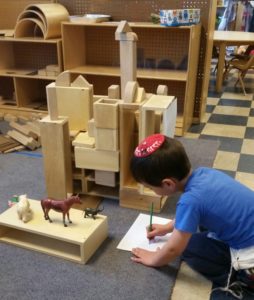 learners in the most effective ways possible. This development is critical for the field of Jewish education. Just as other fields, such as medicine and law, have research that informs and improves practice,
learners in the most effective ways possible. This development is critical for the field of Jewish education. Just as other fields, such as medicine and law, have research that informs and improves practice, 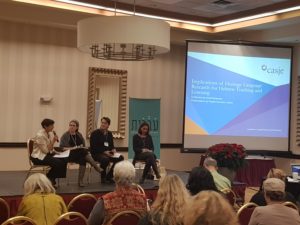 This research directly informs how educators teach Hebrew—plain and simple. We now have a clearer picture of what Hebrew language learners experience and we can apply this research to improve the outcomes in Hebrew language learning.
This research directly informs how educators teach Hebrew—plain and simple. We now have a clearer picture of what Hebrew language learners experience and we can apply this research to improve the outcomes in Hebrew language learning.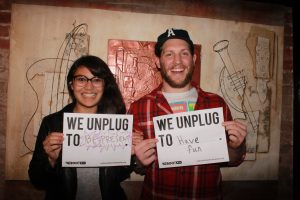
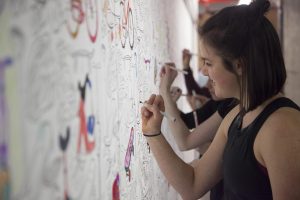
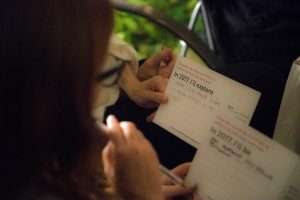
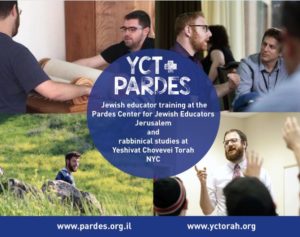 in fall 2018, the two institutions will join forces to begin training outstanding rabbis who are passionate about Jewish education.
in fall 2018, the two institutions will join forces to begin training outstanding rabbis who are passionate about Jewish education.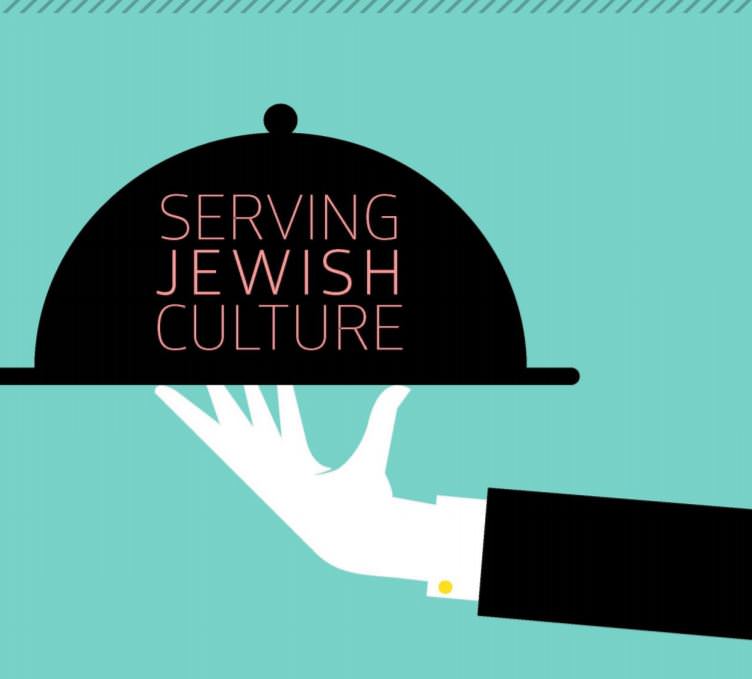 The intensive 13-month, cross-disciplinary curriculum combines coursework in Jewish cultural arts and experiential education with elective courses tailored to students’ individual professional needs and interests. During the school year, students enjoy hands-on, supervised field placements at a broad range of Washington, DC-area Jewish arts, culture, social service, and educational organizations. This element of their training is followed by the Capstone Fellows course—a summer internship placement offering the opportunity to pursue full-time work at exemplary Jewish arts and education organizations around the country and abroad, among them the Contemporary Jewish Museum in San Francisco and Polin in Warsaw, Poland.
The intensive 13-month, cross-disciplinary curriculum combines coursework in Jewish cultural arts and experiential education with elective courses tailored to students’ individual professional needs and interests. During the school year, students enjoy hands-on, supervised field placements at a broad range of Washington, DC-area Jewish arts, culture, social service, and educational organizations. This element of their training is followed by the Capstone Fellows course—a summer internship placement offering the opportunity to pursue full-time work at exemplary Jewish arts and education organizations around the country and abroad, among them the Contemporary Jewish Museum in San Francisco and Polin in Warsaw, Poland.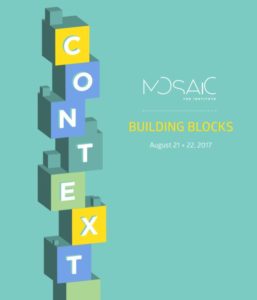 are especially interested in utilizing the arts and different methodologies of experiential education to address social justice issues and to help develop a heightened sense of civic responsibility. A track in the Master’s program focuses on teaching in social justice initiatives. Additionally, in response to growing interest in cultural and heritage tourism, the program will soon offer a track that zeroes in on the relationship between travel and experiential education.
are especially interested in utilizing the arts and different methodologies of experiential education to address social justice issues and to help develop a heightened sense of civic responsibility. A track in the Master’s program focuses on teaching in social justice initiatives. Additionally, in response to growing interest in cultural and heritage tourism, the program will soon offer a track that zeroes in on the relationship between travel and experiential education. Supported by the Jim Joseph Foundation, Charles and Lynn Schusterman Family Foundation, and Lippman Kanfer Foundation for Living Torah, the study builds on the previous and ongoing work of the
Supported by the Jim Joseph Foundation, Charles and Lynn Schusterman Family Foundation, and Lippman Kanfer Foundation for Living Torah, the study builds on the previous and ongoing work of the 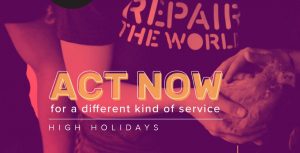
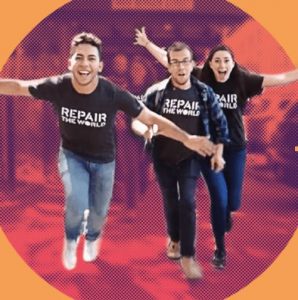 their greater networks to get involved. Utilizing its highly collaborative model, Repair the World will work in partnership with local organizations around the country to help address pressing needs specific to each community, expanding the capacity of organizations and bringing a Jewish lens to the volunteering experience. Visit
their greater networks to get involved. Utilizing its highly collaborative model, Repair the World will work in partnership with local organizations around the country to help address pressing needs specific to each community, expanding the capacity of organizations and bringing a Jewish lens to the volunteering experience. Visit 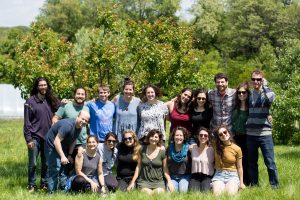 are gaining the skills to create and deliver JOFEE programs infused with rich meaning and learning. And with an estimated hundreds of thousands of participants now engaging in JOFEE annually, there is a need for even more talented leaders and educators in the field.
are gaining the skills to create and deliver JOFEE programs infused with rich meaning and learning. And with an estimated hundreds of thousands of participants now engaging in JOFEE annually, there is a need for even more talented leaders and educators in the field.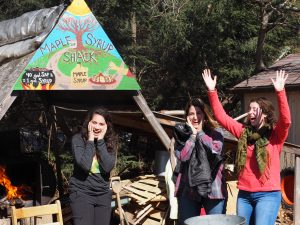 Just a sampling of some of the programs created by Fellows include “Havdallah & Moon Celebration at the Farm,” “Israel Hike & Bike Trip for Young Professionals,” “Avodat Lev (morning prayers) and Jewish text study at San Quentin Prison,” and over 20 Sukkot-related programs and Tu Bishvat seders for youth, teens, young adults, and families. Many Fellows from Cohort 1 still work in JOFEE, continuing to create programming and often times taking on greater leadership roles within their organizations.
Just a sampling of some of the programs created by Fellows include “Havdallah & Moon Celebration at the Farm,” “Israel Hike & Bike Trip for Young Professionals,” “Avodat Lev (morning prayers) and Jewish text study at San Quentin Prison,” and over 20 Sukkot-related programs and Tu Bishvat seders for youth, teens, young adults, and families. Many Fellows from Cohort 1 still work in JOFEE, continuing to create programming and often times taking on greater leadership roles within their organizations.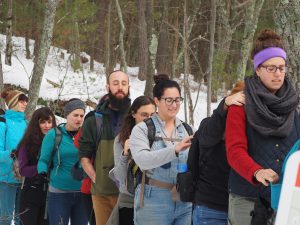
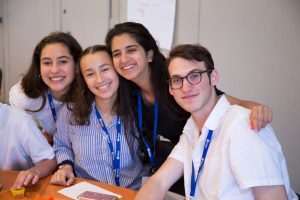 The
The  In addition to information about each community initiative within the Collaborative, extensive research on teens, and reflections from practitioners on the ground, the website shares two new items: the
In addition to information about each community initiative within the Collaborative, extensive research on teens, and reflections from practitioners on the ground, the website shares two new items: the 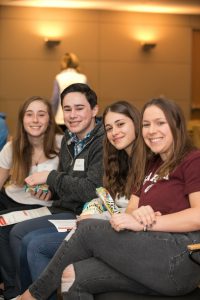 The communities in the Funder Collaborative are Atlanta, Baltimore, Boston, Chicago, Cincinnati, Denver, Los Angeles, New York, San Diego, and San Francisco. Teen initiatives that have been launched by Funder Collaborative communities include a range of Jewish experiences—from volunteer service to professional internships to surfing and more. Nearly all communities attribute early programmatic successes to their participation in the collaborative and its steadfast commitment to knowledge-sharing. The evolution of the collaborative itself is central to creating an environment that fosters risk-taking, experimentation and ongoing reflection.
The communities in the Funder Collaborative are Atlanta, Baltimore, Boston, Chicago, Cincinnati, Denver, Los Angeles, New York, San Diego, and San Francisco. Teen initiatives that have been launched by Funder Collaborative communities include a range of Jewish experiences—from volunteer service to professional internships to surfing and more. Nearly all communities attribute early programmatic successes to their participation in the collaborative and its steadfast commitment to knowledge-sharing. The evolution of the collaborative itself is central to creating an environment that fosters risk-taking, experimentation and ongoing reflection.